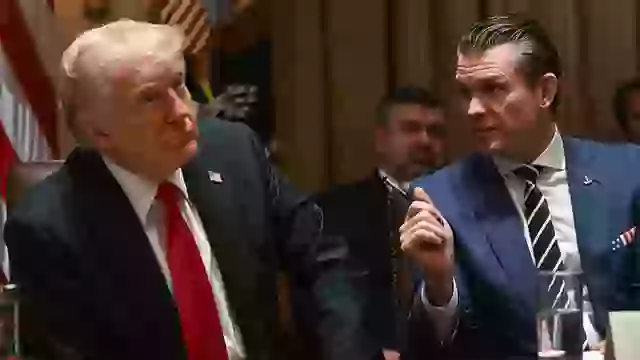A shocking misstep by members of Donald Trump’s administration has drawn intense scrutiny and bipartisan concern after it was revealed that sensitive U.S. military plans were accidentally shared in a group chat that included a journalist. What was meant to be a private and secure thread between top government officials became a potential breach of national security when Jeffrey Goldberg, editor-in-chief of The Atlantic, was mistakenly added to the conversation.
According to Goldberg, the group chat was hosted on Signal, a messaging app known for its encryption, but apparently not immune to human error. Among those involved in the chat were prominent figures from Trump’s inner circle, including Vice President JD Vance, Defense Secretary Pete Hegseth, and National Security Advisor Mike Waltz. The group was allegedly discussing detailed plans regarding upcoming U.S. military strikes on Houthi rebels in Yemen, including sensitive data about targets, weaponry, and timing.

The timeline of events raises serious questions. Goldberg explained that he had received a connection request from someone identifying as Michael Waltz, but initially didn’t think it was genuinely from the national security advisor himself. Nonetheless, shortly after accepting, he was added to a group chat and exposed to classified or near-classified military information, including data about the intended bombing targets and the types of munitions to be deployed.
Even more startling is the fact that, according to Goldberg, he had seen these plans approximately two hours before the actual strike occurred. That window of exposure, though short, could have been enough to endanger the operation had it fallen into the wrong hands. Goldberg has since acknowledged the fortunate coincidence that the message was mistakenly sent to a journalist rather than a hostile actor or sympathizer of the Houthi movement.
Reflecting on the gravity of the situation in an interview with PBS, Goldberg said, “If they were going to pick an errant phone number, at least it wasn’t somebody who supported the Houthis. Because they were actually handing out information that I believe could have endangered the lives of American service people who were involved in that operation.”
The implications of this accidental leak are far-reaching. Donald Trump, when questioned by reporters on March 26, claimed he was not aware of the Atlantic article. That response has raised eyebrows, with many questioning whether this represents a larger communication breakdown within his administration, especially regarding matters of national defense.

Adding to the gravity of the situation, National Security Council spokesman Brian Hughes acknowledged the report’s validity, stating, “At this time, the message thread that was reported appears to be authentic. We are reviewing how an inadvertent number was added to the chain.” Hughes attempted to frame the thread as an example of effective collaboration among senior officials, but critics saw the situation differently.
A formal statement released by White House press secretary Karoline Leavitt tried to redirect attention to the success of the military operation, asserting that “The attacks on the Houthis have been highly successful and effective.” She added that President Trump maintains full confidence in his national security team, including Mike Waltz. However, the public response suggests that the damage to public confidence may already be done.
Across political lines, calls for an investigation into how this breach occurred have grown louder. Senate Democratic Leader Chuck Schumer did not mince words when addressing the issue. “This is one of the most stunning breaches of military intelligence that I have read about in a very, very long time,” he said, signaling a rare moment of bipartisan agreement over national security concerns.
Even Republican Senator Roger Wicker, who chairs the Senate Armed Services Committee, confirmed that his committee would be opening a formal inquiry into the incident. “It’s definitely a concern,” he noted. “It appears that mistakes were made.” That measured but pointed statement suggests that even those aligned with Trump politically are struggling to defend what appears to be a catastrophic lapse in protocol.

While the full scope of the mistake is still being investigated, the consequences may ripple far beyond this single incident. With warfare tactics, strike plans, and military strategy now more reliant on digital communication, even a minor mistake—like inputting the wrong phone number—can have potentially fatal outcomes. In this case, the nation may have been spared disaster by pure luck.
This event shines a spotlight on the challenges of conducting modern warfare in a digital age. Platforms like Signal are encrypted, yes, but no technology is immune to human error. And when the stakes involve lives, national strategy, and international conflict, mistakes of this scale must not happen.